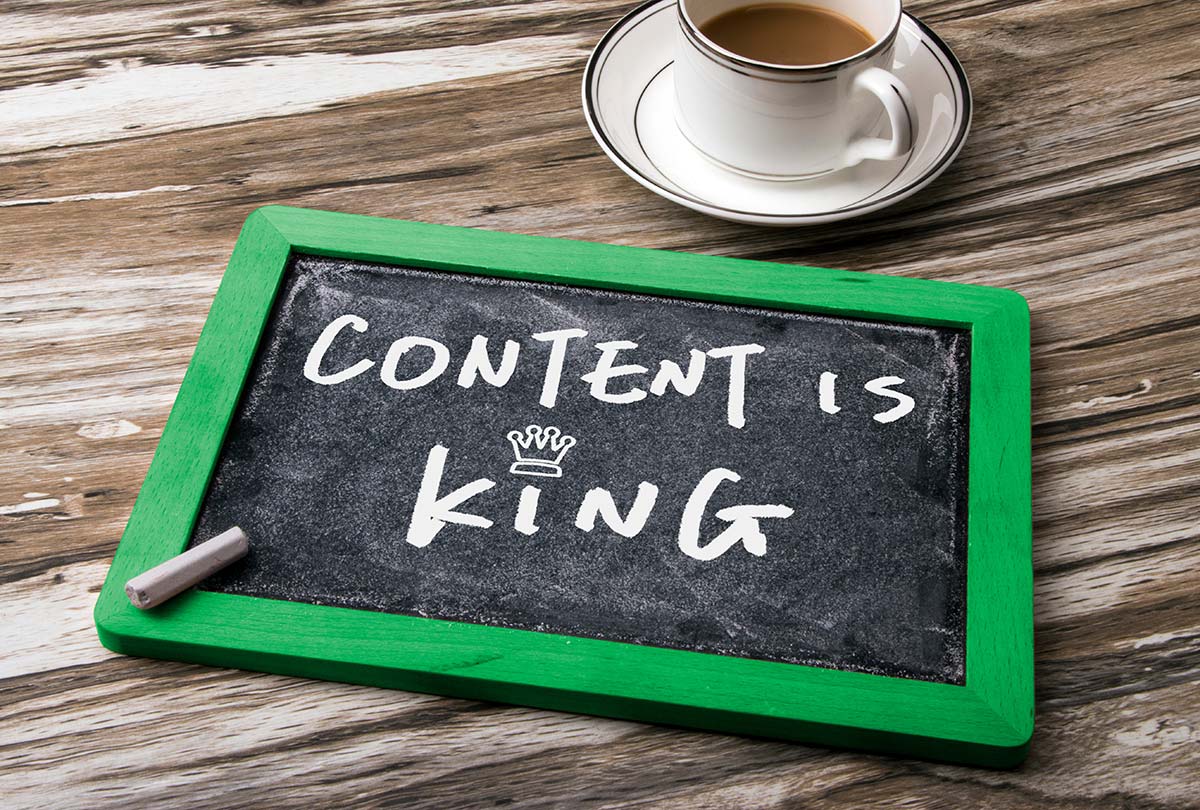In 2025, small business marketing strategies are more crucial than ever, presenting new business owners with opportunities to connect with customers, build their brand, and drive growth. By leveraging word of mouth, digital tools, and thoughtful campaigns, small businesses can connect with their audience effectively.
To stay competitive, it’s essential to invest in marketing efforts that resonate and create lasting connections. By adopting innovative and proven strategies, small businesses can stay competitive and thrive in a dynamic market landscape.
Here are the top marketing strategies tailored to trends and technologies shaping 2025.
Why Small Business Marketing Strategies Matter
Small businesses today face unique challenges, from standing out in crowded markets to keeping up with fast-changing technology. Adopting effective marketing strategies isn’t just about growing a business; it’s about survival and creating lasting relationships with customers. In this guide, we’ll explore actionable marketing tips to help you thrive.
1. Establish a Strong Online Presence
 A robust online presence remains the cornerstone of any successful marketing strategy. Small business owners must prioritize this aspect to reach their target audience effectively.
A robust online presence remains the cornerstone of any successful marketing strategy. Small business owners must prioritize this aspect to reach their target audience effectively.
- Website Optimization: Make sure your business website works well on mobile, loads quickly, and is easy for search engines to find. With over 60% of small businesses still not fully utilizing SEO, this represents a significant opportunity to improve local search results and bring your business in front of potential customers.
- Google Business Profile: Keep your Google Business Profile updated to enhance visibility in local searches and attract nearby customers. Adding photos and responding to reviews can also help you build trust with your customer base.
- Local Citations and Business Directories: Consistency in your business’s name, address, and phone number (NAP) across online directories like Yelp, Yellow Pages, and niche-specific listings is crucial for local SEO. These local citations help search engines verify your business’s legitimacy and improve your local rankings. Registering your business in trusted directories can also bring in referral traffic and strengthen your online credibility.
- Leverage Local SEO Tools: Local SEO tools like Moz Local, BrightLocal, and SEMrush can simplify the process of managing citations, identifying gaps in directory listings, and tracking your performance in local search. By using these tools, small business owners can ensure their marketing efforts are optimized and maintain a competitive edge in local markets.
By focusing on these aspects, your small business can connect with its target audience more effectively, enhance its visibility, and build a solid foundation for long-term growth.
2. Use Social Media Marketing
 Social media platforms continue to dominate customer engagement and brand building. These platforms offer excellent opportunities for small business owners to connect with their audience.
Social media platforms continue to dominate customer engagement and brand building. These platforms offer excellent opportunities for small business owners to connect with their audience.
- Short-Form Videos: Use platforms like TikTok, Instagram Reels, and YouTube Shorts to share authentic, engaging, and brand-aligned content. Short videos resonate with audiences and are a powerful tool for building brand awareness.
- Micro-Influencers: Collaborate with influencers who have smaller but highly engaged followings (1,000–50,000 followers). Partnering with local influencers can help your marketing efforts resonate and make a compelling case for your product or service.
- Social Ads: Invest in targeted ads on platforms like Facebook and Instagram to achieve measurable results. Paid tools like these can drastically improve your existing operations and performance.
3. Embrace Content Marketing and SEO
 Content marketing and search engine optimization (SEO) remain essential strategies for small businesses looking to expand their reach.
Content marketing and search engine optimization (SEO) remain essential strategies for small businesses looking to expand their reach.
- Blogging: Publish SEO-optimized blog posts addressing customer pain points to drive organic traffic. Regular blogging not only positions your business as a trusted authority but also significantly boosts SEO by increasing indexed pages and improving search rankings. Learn more about how blogs help with SEO.
- Diverse Formats: Leverage videos, infographics, and downloadable guides to cater to various audience preferences and enhance your marketing plan.
- Voice Search Optimization: Prepare for the growing use of voice assistants by optimizing content for natural language queries. This strategy helps your business appear in local search results when customers look for solutions.
4. Personalize Email Marketing
Email marketing continues to yield high returns, especially when combined with AI-powered personalization. It’s also a great way to get your business in front of existing customers while attracting new ones.
- Segmentation: Tailor messages based on customer behaviors, such as purchase history or browsing patterns. Craft messaging that resonates and makes a compelling case for your product or service.
- Automated Milestone Emails: Celebrate customer birthdays or anniversaries with personalized offers, such as a percentage off your products. Customers will be more inclined to engage with thoughtful, timely marketing messages.
5. Invest in Paid Advertising for Immediate Results
Search advertising remains a highly effective way to capture high-intent customers, making it a valuable component of any marketing plan. For small businesses looking to bring in new customers, paid advertising offers versatile and powerful tools.
- Google Ads: Use pay-per-click (PPC) campaigns to appear at the top of search engine results pages (SERPs). This approach helps you bring in new customers who are actively searching for solutions. By combining PPC with SEO, you can dominate the top spots in search results.
- Social Ads: Platforms like Facebook and Instagram provide excellent opportunities to connect with your target audience. You can refine your campaigns using advanced targeting options based on interests, behaviors, and demographics. Social ads also offer a great way to increase brand awareness and generate leads quickly.
- LinkedIn Ads: For business-to-business (B2B) companies, LinkedIn is a powerful platform. You can run targeted campaigns to connect with professionals, business owners, and decision-makers, leveraging this network to build relationships and expand your reach.
- Video Ads on YouTube: Video content continues to be one of the most engaging formats. Running ads on YouTube allows you to present your product or service to a highly engaged audience. These ads can align with your audience’s preferences and enhance your overall digital marketing efforts.
- Display Ads: Use online display ads to appear on relevant websites your audience visits. These visual ads are a great way to build brand recognition and complement your other marketing tactics.
- Retargeting Campaigns: Retargeting is a powerful tool to re-engage people who have already interacted with your website or ads. Whether it’s through Google Ads, Facebook, or Instagram, retargeting can help you reach potential customers who are more likely to convert. This approach drastically improves existing operations and performance by focusing on people who are already familiar with your brand.
Paid advertising offers a wide range of marketing platforms, making it easier to develop a niche and appeal to your target audience. For small businesses, this is also a great way to get customers and build brand awareness quickly.
6. Utilize AI-Powered Tools
Artificial intelligence is transforming how small businesses connect with their audiences, offering innovative marketing opportunities. You’re a small business. That means that you’re busy and don’t have a lot of extra time.
- Content Generation: Use AI tools like Jasper, Writesonic, Grammarly, ChatGPT and Claude to help create personalized social media content, emails, and blog posts that align with your target audience. These tools can save time and improve the quality of your marketing efforts. For research, tools like Perplexity can simplify finding valuable insights to inform your strategy.
- Customer Service: Automate responses and support with AI-driven chatbots like Zendesk AI or Intercom. These tools enhance customer satisfaction by providing quick and accurate responses to inquiries.
- Performance Analytics: Leverage tools like Google Analytics, HubSpot, or Tableau to analyze campaign performance and make data-driven decisions. AI-powered analytics can help you identify what resonates most with your customer base, enabling you to refine your marketing initiatives effectively.
AI tools not only streamline your operations but also help you stay competitive by offering deeper insights and personalization and can help you craft messaging. For small businesses, investing in the right tools can drastically improve existing operations and lead to better overall performance.
7. Incorporate Sustainable Marketing
 Consumers increasingly prefer brands that demonstrate environmental responsibility. This shift offers new marketing opportunities for small businesses.
Consumers increasingly prefer brands that demonstrate environmental responsibility. This shift offers new marketing opportunities for small businesses.
- Sustainable Practices: Adopt eco-friendly packaging or carbon-neutral shipping methods. Highlight these efforts in your marketing campaigns to appeal to environmentally conscious customers.
- Transparent Communication: Share your sustainability efforts as part of your brand story. Customers who value sustainability are more likely to support your business.
- Consumer Demand: 78% of consumers actively seek brands that align with their environmental values, with many willing to pay a premium for sustainable products. For example, American consumers are willing to pay, on average, 11% more for eco-friendly products, though companies often charge up to 28% more
Market Growth: Products with sustainability-related claims have outperformed others, achieving 28% cumulative growth over five years compared to 20% for non-sustainable products. These products now account for nearly half of retail sales in certain categories
8. Explore Virtual and Augmented Reality (VR/AR)
 Virtual and augmented reality technologies are becoming more accessible for small businesses, creating unique ways to showcase products.
Virtual and augmented reality technologies are becoming more accessible for small businesses, creating unique ways to showcase products.
- AR Filters: Allow customers to “try on” products virtually, creating an interactive experience that resonates with modern shoppers.
- Virtual Showrooms: Create immersive shopping experiences to showcase your offerings. These tools can help you bu
9. Build Relationships Through Networking
Offline and online networking remains a vital marketing strategy for small business owners.
- Local Events: Participate in or sponsor community events to connect with other local businesses and potential customers. Partnering with local businesses is also a great way to expand your reach.
- Guest Blogging: Collaborate with complementary businesses or blogs to expand your reach. This tactic aligns with a small business marketing strategy focused on partnerships.
10. Monitor and Optimize Campaigns
The key to long-term success is continual improvement. Regularly tracking and refining your marketing efforts will ensure your strategies for small businesses stay effective.
- Analytics Tools: Use platforms like Google Analytics and social media insights to track performance. These tools offer excellent opportunities to network your business online.
- Adapt Strategies: Regularly refine your approach based on what works best. This commitment to improvement ensures your marketing messages resonate with your audience.
11. Build Loyalty Through Empathy and Excellent Customer Service
Great branding doesn’t stop at your website or your logo—it’s woven into how your team interacts with customers every day. Your brand is experienced through tone, responsiveness, and those quiet moments of human care that no marketing campaign can manufacture. Simple, empathetic gestures—like going the extra mile to fix a small mistake—can turn a one-time buyer into a lifelong fan.
One of the most powerful tools for building customer trust is the LATTE Method, developed by Starbucks. It’s a five-step framework designed to help frontline employees manage customer interactions with empathy, professionalism, and grace. While originally built for handling complaints, the brilliance of the LATTE method is that it works equally well in any customer touchpoint.
Here’s what it looks like in practice:
-
Listen – Fully hear the customer out without interrupting. Let them explain their concern or request so they feel seen and respected.
-
Acknowledge – Validate their experience or frustration. A simple, “I can understand how that would be frustrating,” goes a long way.
-
Thank – Express gratitude for their feedback or for bringing the issue to your attention. It reframes the situation as a shared opportunity for improvement.
-
Take Action – Resolve the issue confidently and promptly. Empower your team to do what’s right, not just what’s policy.
-
Explain – Offer clarity on what happened and how it was addressed. This builds transparency and trust moving forward.
For small businesses, the LATTE method is more than a script—it’s a mindset. It gives your team a shared language for delivering excellent service while keeping your brand’s humanity front and center.
When practiced consistently, this type of interaction does more than solve problems—it builds emotional connection. And according to recent studies, emotionally connected customers are more loyal, more forgiving, and significantly more likely to recommend your business to others.
In short: when people feel cared for, they come back. That’s not just customer service—it’s brand strategy.
Online Marketing: The Future of Small Business Success
 As technology evolves, small businesses must embrace online marketing to stay competitive. Digital tools like social media platforms, email automation, and AI-powered analytics provide unparalleled opportunities to connect with customers, showcase your brand, and grow sustainably.
As technology evolves, small businesses must embrace online marketing to stay competitive. Digital tools like social media platforms, email automation, and AI-powered analytics provide unparalleled opportunities to connect with customers, showcase your brand, and grow sustainably.
Whether leveraging influencer marketing, word-of-mouth marketing, or exploring a referral program, the right strategies can set your business apart.
For small businesses in 2025, success lies in adopting marketing ideas that resonate with your audience, committing to paid tools if you know they will drastically improve performance, and staying authentic in every interaction.
By leveraging digital tools and marketing platforms, you’re able to stop marketing tactics that no longer work and focus on what truly delivers results.
Embrace traditional marketing methods while enhancing them with digital innovations to connect with new customers and grow sustainably.
How Cider House Can Help
As a digital marketing agency, we specialize in helping small businesses achieve measurable results through tailored marketing strategies. Whether you need a modern, high-performing website, an SEO-driven content plan, or local marketing expertise to get your business noticed, our team is here to guide you every step of the way.
Let’s work together to create impactful solutions that connect you with your customers and grow your business.
Contact us today to learn how we can help you reach your goals.



